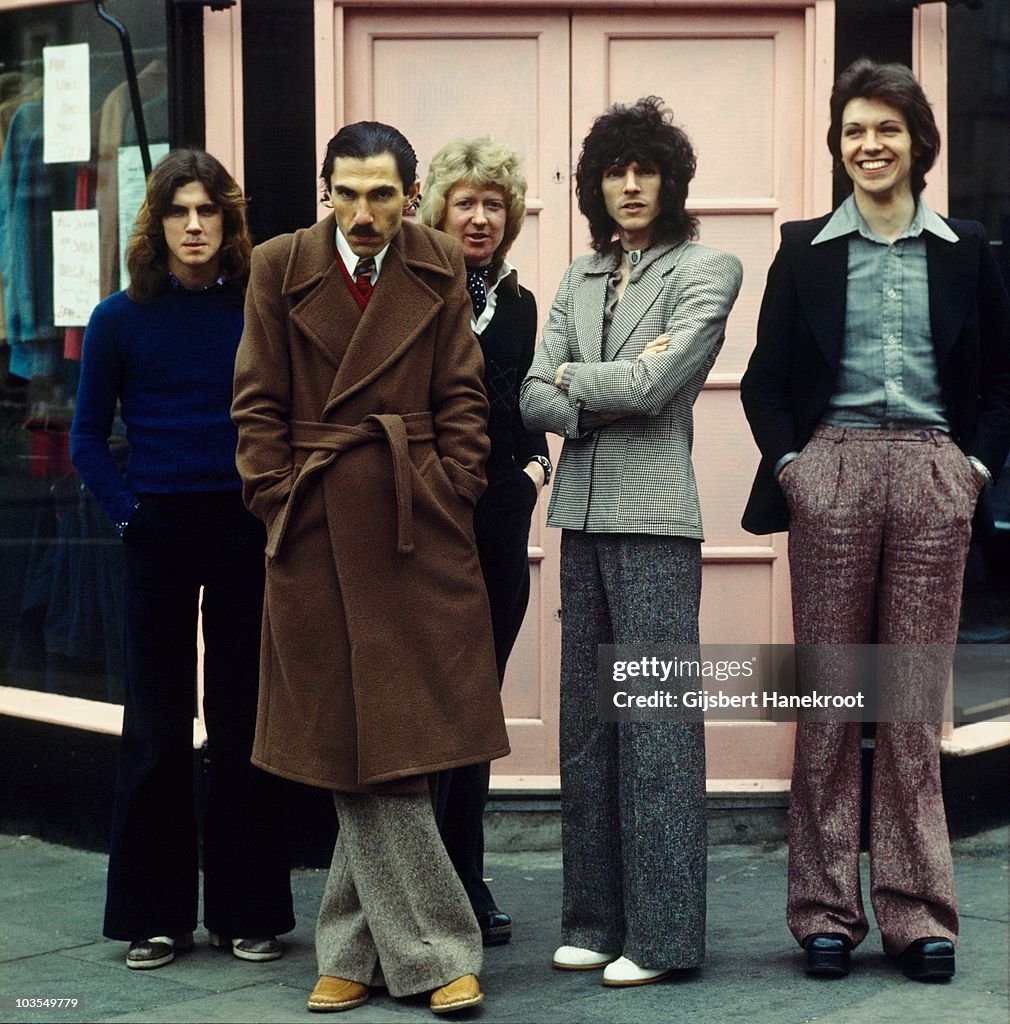
The Wondrous Waltz of Narcissism: A Perfect Ode to Self-Love’s Exhilarating Return
A Triumphant, Tongue-in-Cheek Waltz from Glam Rock’s Peak
For those of us who came of age during the magnificent, theatrical spectacle that was 1970s Glam Rock, few bands shone with a more eccentric, intellectual, and utterly distinctive light than Sparks. And nestled perfectly within their 1974 masterpiece, the album Kimono My House, is the gloriously narcissistic, yet undeniably joyous track, “Falling in Love with Myself Again.” Released on May 1, 1974, this song arrived on the heels of the album’s sensational lead single, “This Town Ain’t Big Enough for Both of Us,” which launched the Los Angeles duo—brothers Ron and Russell Mael—to genuine stardom in the UK.
While “Falling in Love with Myself Again” was not released as a single and did not chart independently, it is inextricably linked to the success of its parent album, Kimono My House. The album itself was a phenomenal breakthrough, peaking at No. 4 on the UK Albums Chart and reaching No. 101 on the US Billboard 200. This period marked Sparks’ true transformation into British pop icons, celebrated for their unique blend of angular New Wave, theatrical rock, and witty, often deeply odd, lyrics. The song itself is the third track on the album, immediately following the minor UK single “Amateur Hour,” perfectly setting the stage for the album’s quirky genius.
The Story: A Melodic Journey of Solipsistic Joy
The story behind this particular song is less about external circumstance and more about the internal world of its brilliant lyricist, Ron Mael. Sparks have a career-long fascination with self-reference, identity, and the various, often bizarre, ways humans approach relationships. “Falling in Love with Myself Again” is a key part of this ongoing narrative, directly anticipating or echoing other tracks where the subject of self-reliance and—let’s be honest—egocentrism takes center stage, such as “I Married Myself” from 2002’s Lil’ Beethoven.
What makes this track a timeless wonder is its unflinching embrace of the most glorious form of self-centeredness. It’s an arch, wryly-written expression of a person who has rediscovered their own company as the best company. The “again” in the title implies a necessary break from the self, perhaps due to an inconvenient, messy, and ultimately distracting romantic entanglement. The story being told is one of a triumphant return to personal independence, free from the burdens and compromises of a partner. Lines like, “I bring home the bacon and eat it myself, Here’s to my health, Hope that I am feeling well,” are delivered with a kind of blissfully unaware, yet intensely charming, arrogance that only the Mael brothers could pull off. It’s a celebration of having shed the emotional weight of another person and basking in the simple, uncomplicated joy of one’s own singularity.
Meaning and Nostalgic Resonance
At its core, the meaning of “Falling in Love with Myself Again” is a celebration of unapologetic, blissful self-reliance. It’s the ultimate statement of “self-love is best love,” wrapped in a catchy, unusual musical package. For listeners of a certain vintage, particularly those who remember the song’s initial release amidst the wild creativity of the mid-70s, the track holds a specific, reflective power. It evokes the memory of youthful exuberance and the time when one’s own dreams, needs, and eccentricities felt paramount—a period before the complex obligations of adult life took over.
Musically, the song is built on a magnificent, lilting waltz tempo (specifically in a $9/8$ time signature), a delightfully unexpected structure for a rock song. This musical form gives the whole affair a slightly dizzying, theatrical air, like an old-world dance performed with a modern, subversive twist. Russell Mael’s signature operatic vocals soar over Ron Mael’s distinctive, driving keyboard work and the tight, complex playing of the new English backing band, especially the inventive bass line from Martin Gordon. It’s the sound of Sparks at their most thrillingly unique: smart, funny, melodically rich, and slightly absurd. It reminds us of a time when pop music could be both high art and deeply silly, and that the greatest love story might just be the one you have with yourself.